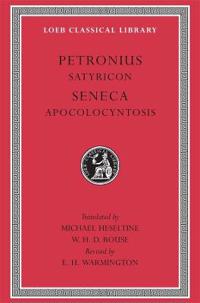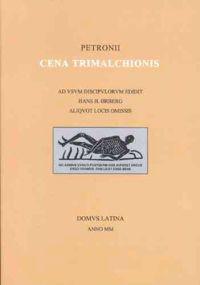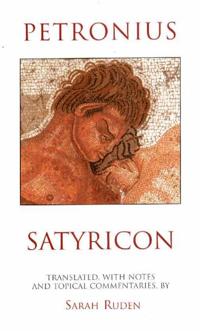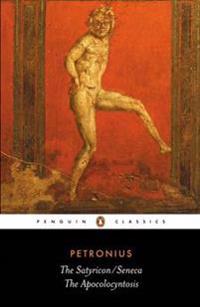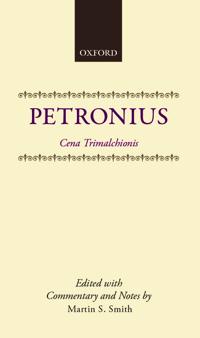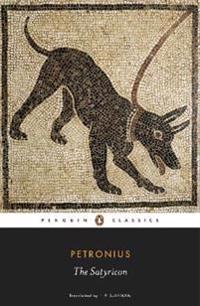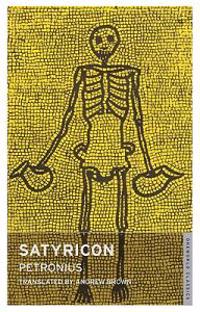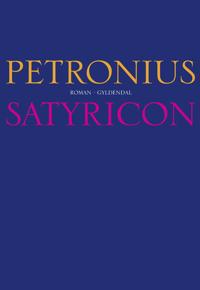Petronius (Inbunden)
avPetronius Arbiter, Seneca. Apocolocyntosis
ISBN: 9780674990166 - UTGIVEN: 1936-12Petronius (C. or T. Petronius Arbiter), who is reasonably identified with the author of this famous satyric and satiric novel, was a man of pleasure and of good literary taste who flourished in the times of Claudius (41-54 CE) and Nero (54-68). As Tacitus describes him, he used to sleep by day, and [...]
Satyricon Reliquiae (Häftad)
avPetronius Arbiter, Petronius Arbiter, Petronius, Konrad Muller
ISBN: 9783598712579 - UTGIVEN: 2004-01Satyricon (Pocket)
avPetronius Arbiter, Sarah Ruden, Petronius Arbiter
ISBN: 9780872205109 - UTGIVEN: 200003This new Satyricon features not only a lively, new, annotated translation of the text, but also fresh, and accessible commentaries that discuss Petronius' masterpiece in terms of such topics as the identity of Petronius, the transmission of his manuscript, literary influences on the Satyricon, and t[...]
The Satyricon; The Apocolocyntosis of the Divine Claudius (Häftad)
avPetronius Arbiter, Lucius Annaeus Seneca, Petronius
ISBN: 9780140444896 - UTGIVEN: 198612The Satyricon is a classic of comedy, a superbly funny picture of Nero's Rome as seen through the eyes of Petronius, its most amorous and elegant courtier. William Arrowsmith's translation - a lovely, modern, unexpurgated text - recatpures all the ribald humor of Petronius's picaresque satire. It [...]
The Satyricon (Storpocket)
avPetronius Arbiter
ISBN: 9780140448054 - UTGIVEN: 201110"The Satyricon" is one of the most outrageous and strikingly modern works to have survived from the ancient world. Most likely written by an advisor of Nero, it recounts the adventures of Encolpius and his companions as they travel around Italy, encountering courtesans, priestesses, con men, brothel[...]
The Satyricon of Petronius Arbiter: The Book of Satyrlike Adventures (häftad)
ISBN: 9781517136338 - UTGIVEN: 2015-08Satyricon (Häftad)
avPetronius Arbiter
ISBN: 9781847491169 - UTGIVEN: 200911Documenting the colourful escapades of the former gladiator Encolpius and his less than faithful lover Giton, the "Satyricon" plunges the reader into the lives of ordinary Roman citizens, vividly revealing the Empire's seamy underbelly. A host of unforgettable characters are satirically presented, s[...]
Satyricon (Häftad)
avPetronius Arbiter
ISBN: 9788702072907 - UTGIVEN: 2009Titlen Satyricon er afledt af det græske ord for satyr og opbygger således en forventning om uregerlig kønsdrift. Men den hentyder også til det romerske ord satura ´satire´. Satiren i Satyricon blomstrer bl.a. i afsnittet om ´Trimalchios Middag´ om den nyriges snobberi, blodt[...]

